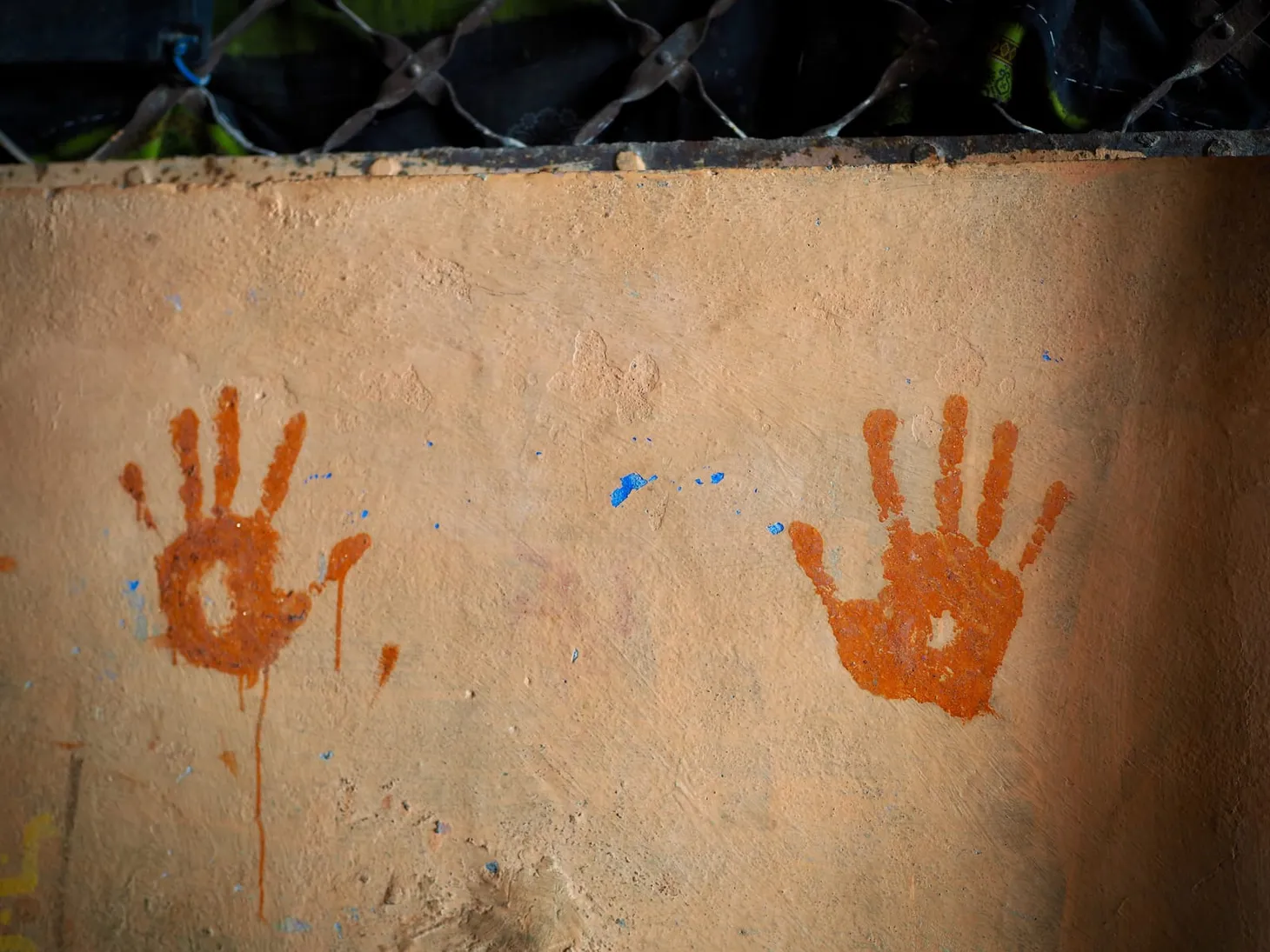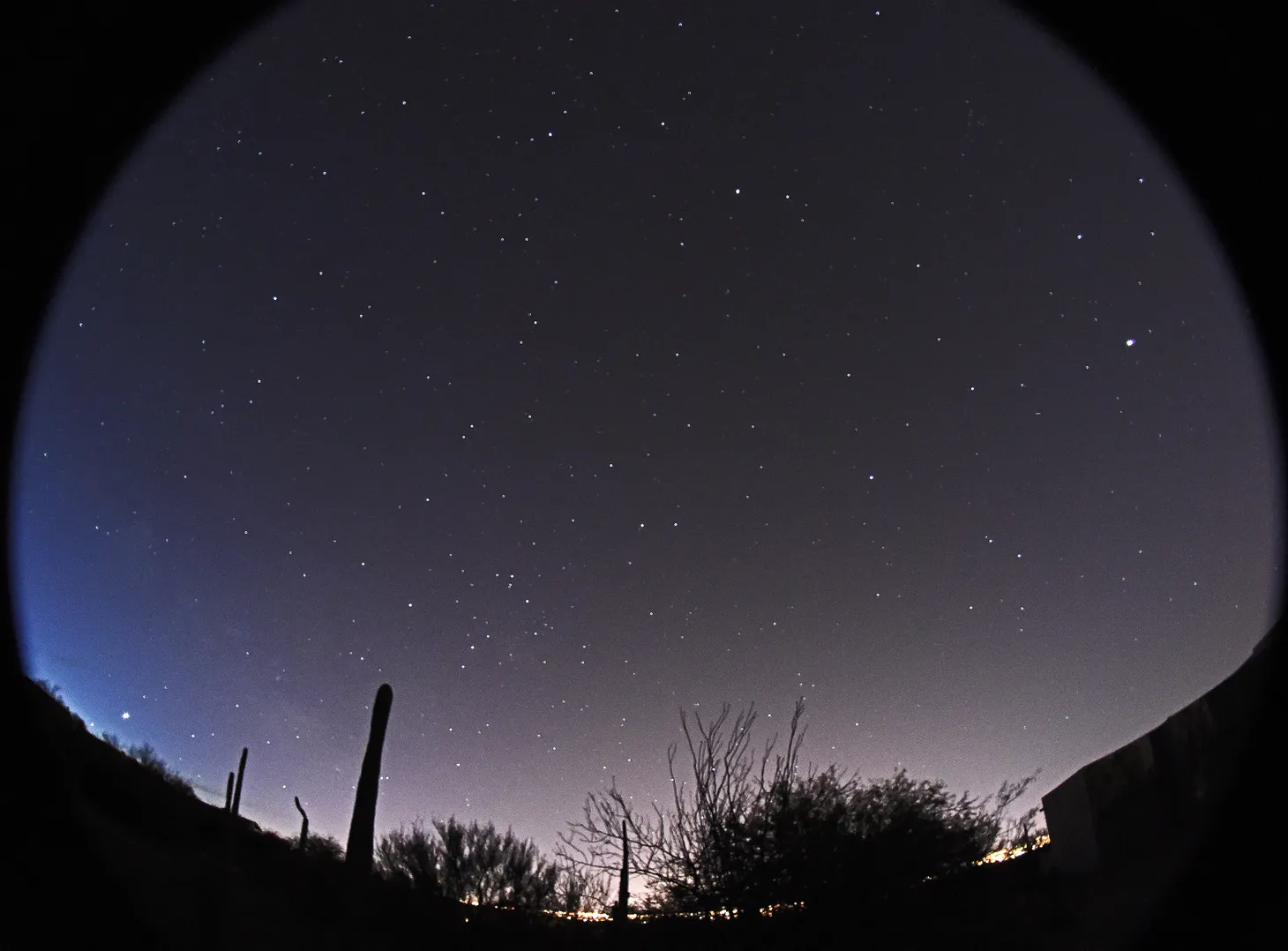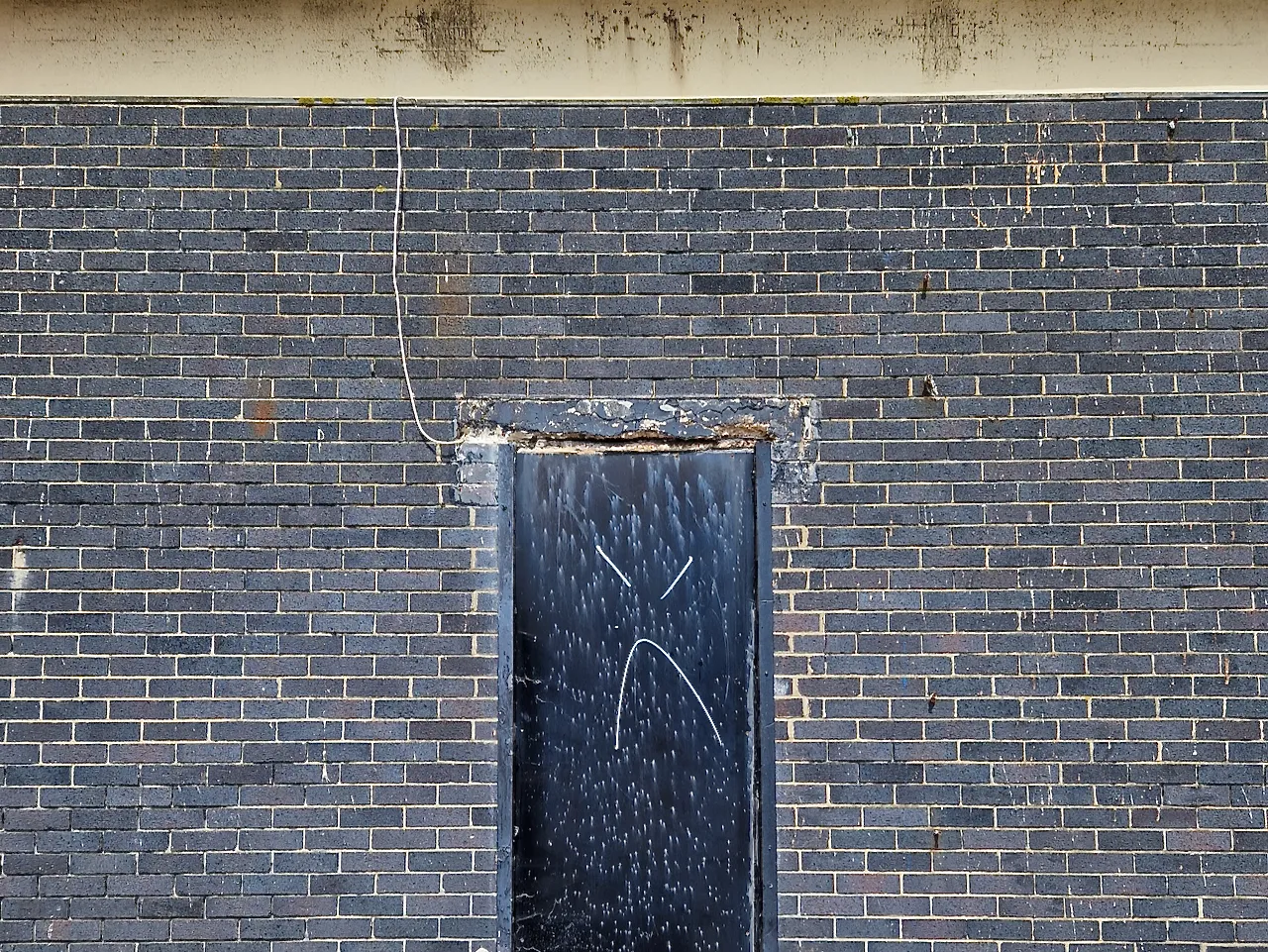Watching Ourselves Wait
Waiting is essentially about a desired future. It's the duration of time that is the obstacle between where we are, and where we want to be. No wonder it brings up feelings of discomfort, boredom, or even anger. But what if we could wait differently? What could we see?
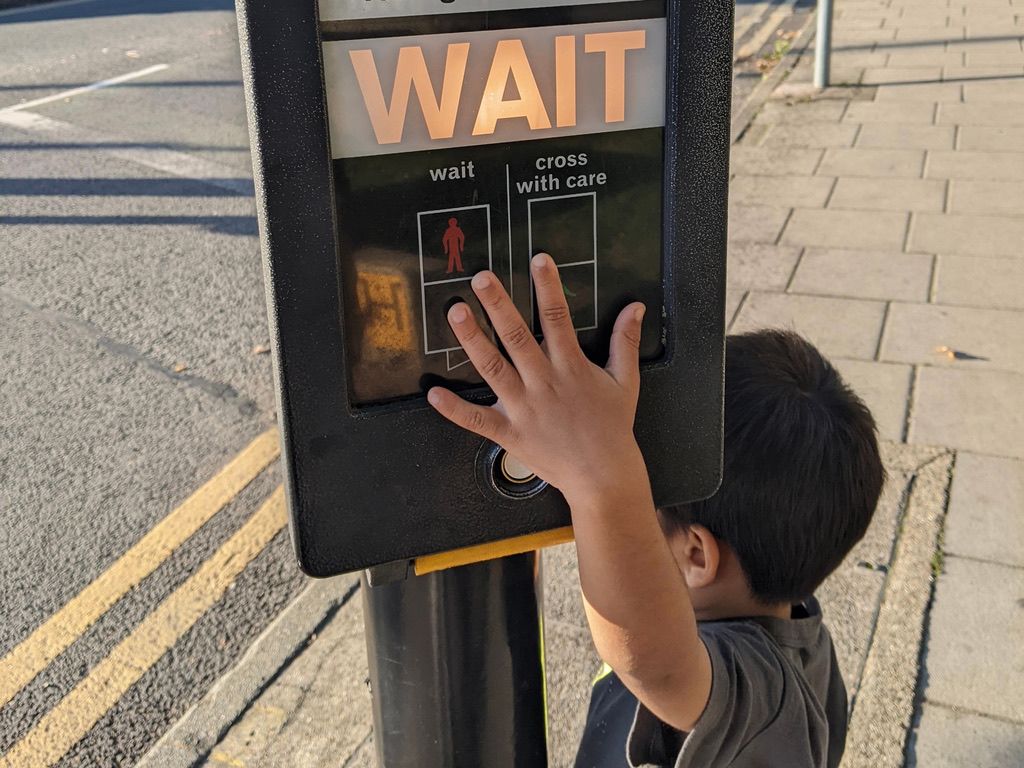
It's Menka here with another Just Looking Letter, a monthly nudge to slow down and notice more of this moving moment we call life.
My last letter was about the stars. It's amazing how a single glance can give us a sense of our place in the universe. Many of you responded with your own stories, which reminded me of how non-ordinary such experiences are. Helen Hartmann kindly told me about an inspiring project called SEEING STARS, in which everyone in the Dutch city of Franeker switched off their lights at the same time. Here's a How-To manual if you want to make this happen where you live.
About Waiting
I left home at the exact worst possible time this morning. My son is very British in that he loves queues. He squealed in excitement as we inched through slow-moving traffic. I tried not to show my frustration. But the contrast in our reactions got me wondering: why exactly is waiting so widely hated?
Waiting is essentially about a desired future. It's the duration of time that is the obstacle between where we are, and where we want to be. No wonder it brings up feelings of discomfort, boredom, or even anger. We're simply not where we want to be. It's not just about the time it takes (and the feeling of scarcity around that) but also the lack of control. Not knowing when the wait will be over makes it harder to swallow. The very origin of the word "wait" reflects this negativity: the Old Northern French word "waiter" means to watch with hostile intent.
In Jason Farman's book all about waiting, Delayed Response, he points out that time tends to be invisible, especially when we feel that we are making the most of it. Waiting, in contrast, draws attention to itself because it feels like a waste. Mirrors in elevators, and buffering icons, are all meant to distract us for a while, engaging us in doing something so we don't notice the time passing so much.
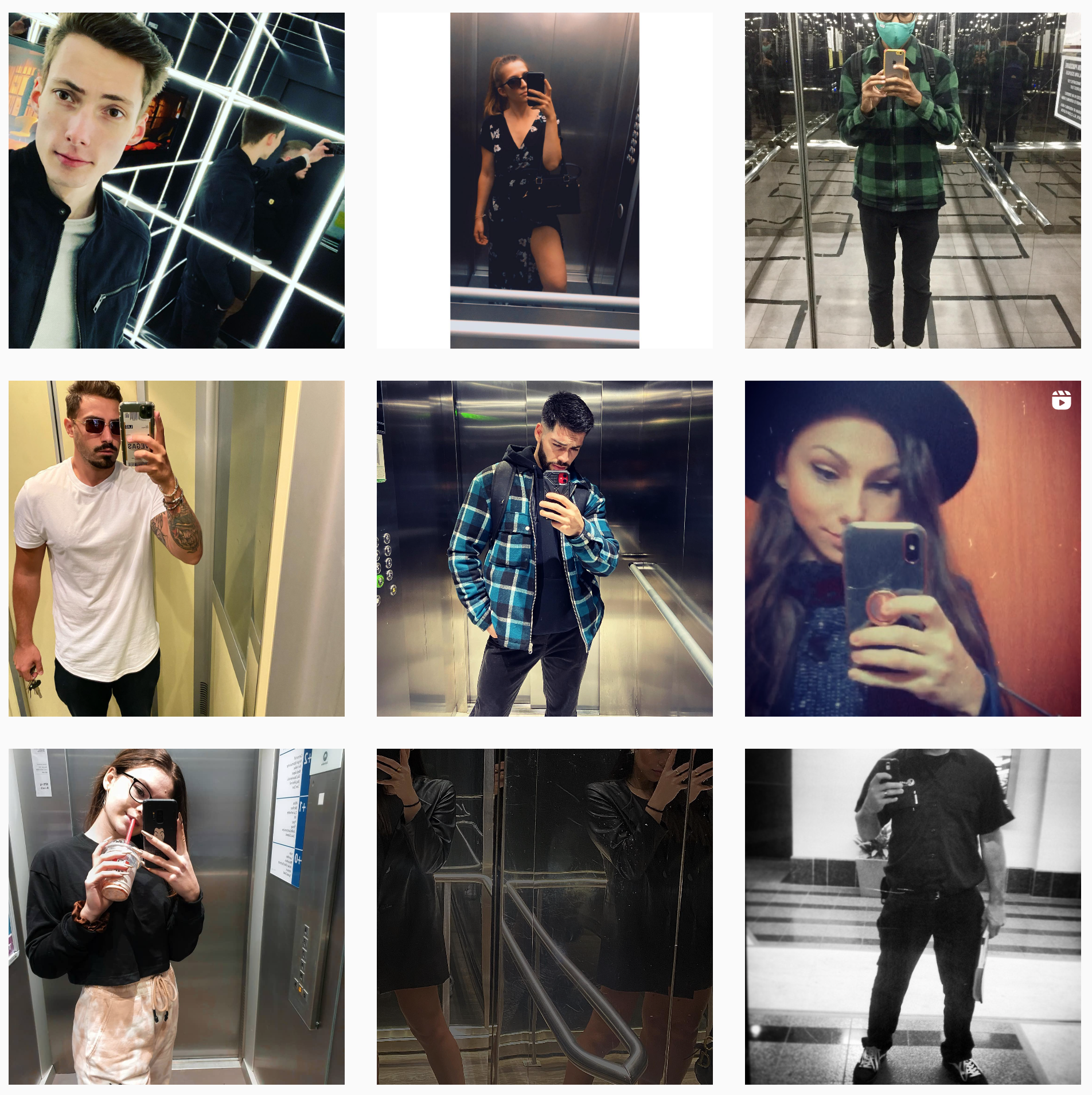
What makes it feel worse is that we don't all wait equally. Who waits, and how, differs depending on status, wealth and power. In major cities around the world there is an emerging waiting economy. Those who can afford it can pay someone to stand in line to get their work visa, doctor's appointment, or the latest iPhone. Everyone else has to wait, no matter how difficult that is.
Yet at times (like for my son this morning) waiting can be a joyful occasion. In London recently there was a huge line that became known as "The Queue". It grew so long that there was another queue to join it. For those inclined to be there, there was a sense of community, a historic privilege, and national pride. Nobody was complaining about the wait.

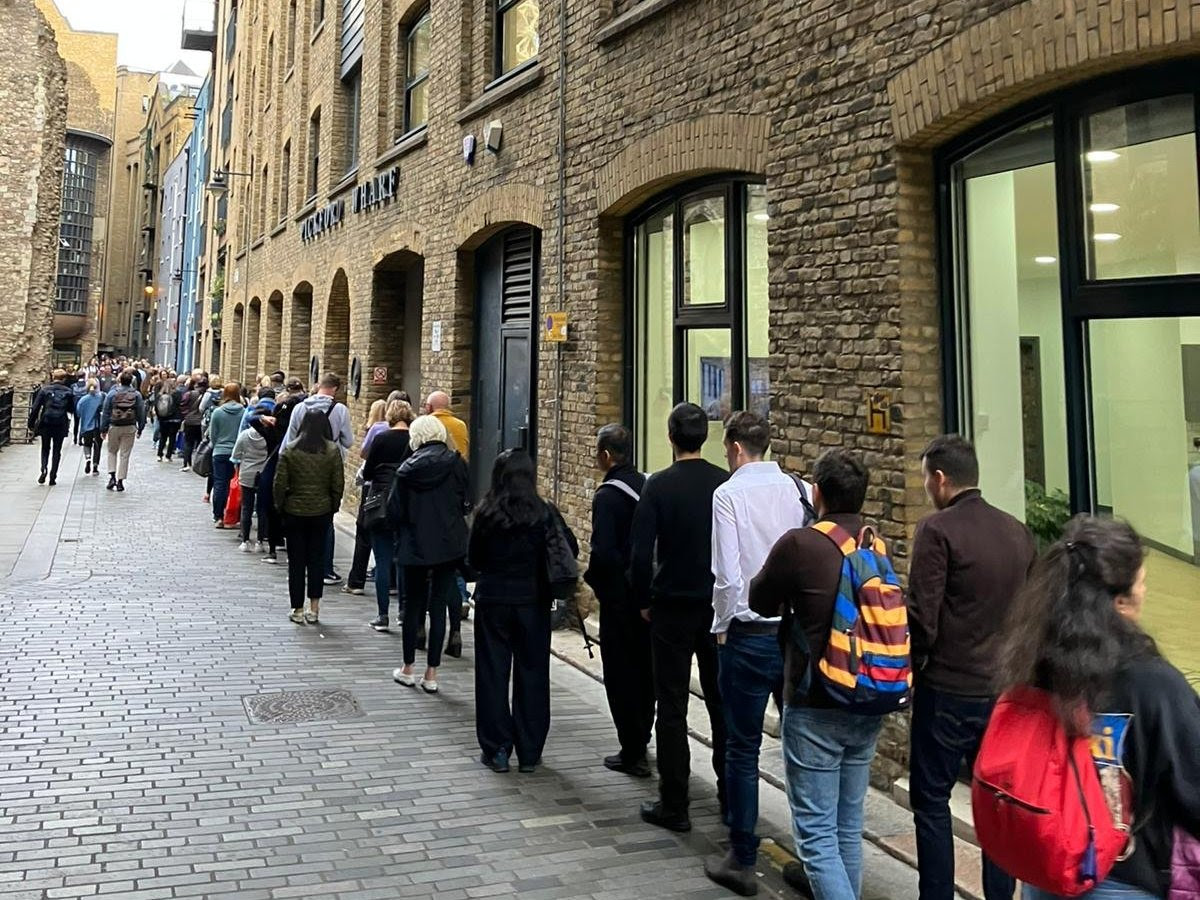
Our experience of waiting clearly depends on how meaningful we find the activity. When we find it meaningless, we move our attention along to something else, say checking our hair in the mirror or catching up on emails. It's great to have, and to exercise, our attentional options. But if we always switch away from the raw experience of waiting, what might we miss?
"Waiting pulls us into the present unlike any other experience of time. In waiting, we realise that this moment is meaningful as it exists, not as some step towards a future moment... Each moment is its own experience and its own fulfillment."
- Jason Farman
The challenge is how to be present while in the grips of the assumption that the-thing-we-may-gain-when-the-wait-is-over will make our life better than it is right now. How can we focus on anything but that bright future? As always, curiosity can lead us back to our current life experience. What do our hopes and desires in this moment tell us about who we are? And what about these emerging sensations in the mind and body: excitement, boredom, helplessness and anger? What do they feel like; where do they come from; where do they go?
Perhaps the most sublime object for our curiosity is time itself. The passage of time normally slips past unnoticed, but when we're waiting it slows right down, each drop of time falling from a closed fist, splashing loudly as it hits the ground. What a wonder to observe for “It is we who are passing when we say time passes,” the French philosopher Henri Bergson once noticed.
Looking Exercise
Waiting Differently
Next time you're waiting, or in-between, consider how you can reclaim some control and power in this situation. Imagine for a moment that you'd planned to have this extra time right now. Time to look around. Time to contemplate. Time to notice time. Or simply to notice yourself, waiting. What do you see?
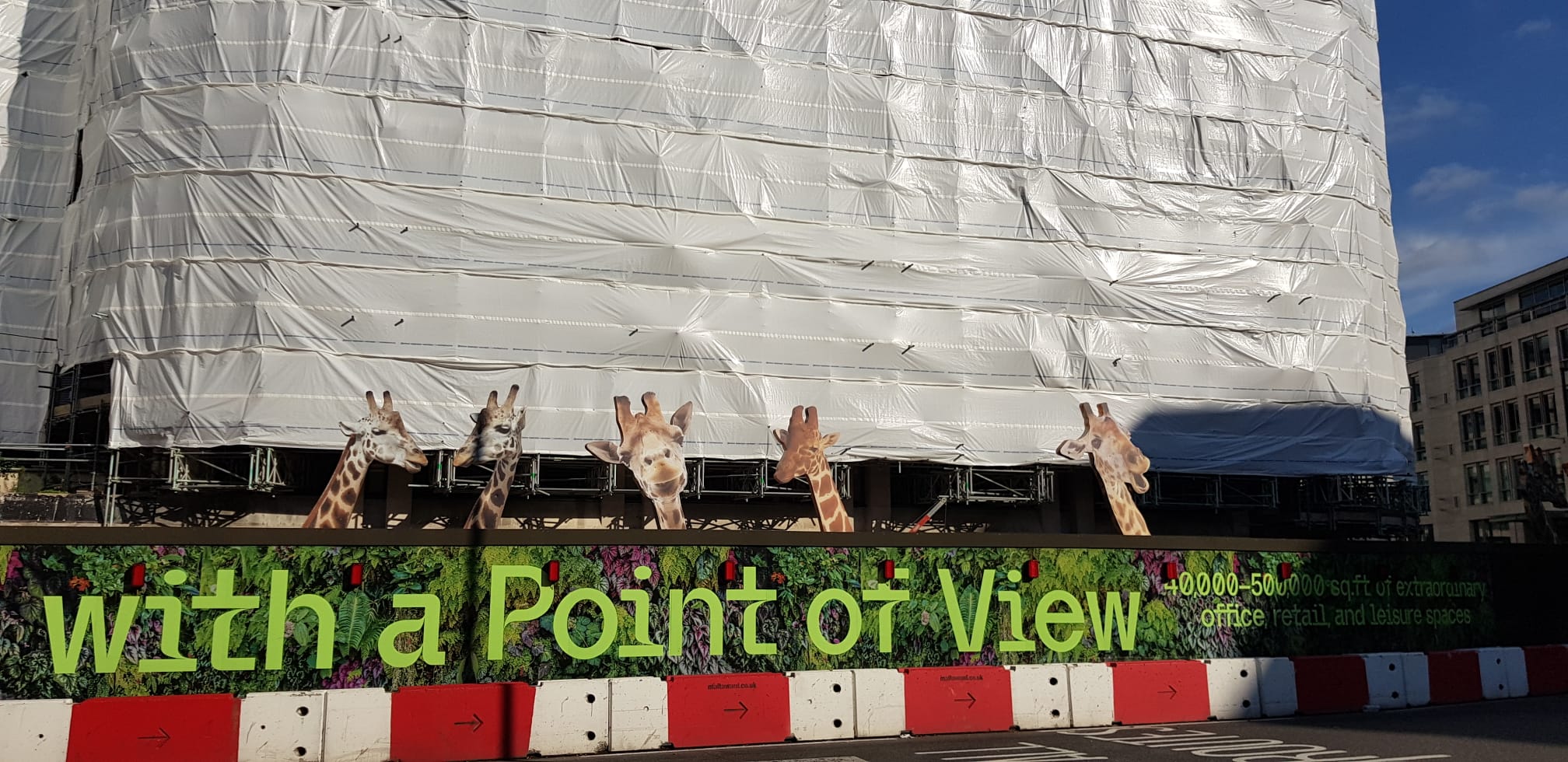
As always you're welcome to reply to this prompt with a photograph (I love seeing these), or go big and share it with the wider community on Instagram using #wearejustlooking.
Links About Looking
Orson Welles on the Genius of Not-Knowing [Watch: 1.30min]
"Where do you get the confidence from?', he's asked. 'Ignorance! Ignorance! Sheer ignorance. There's no confidence to equal it. It's only when you know something about a profession that you're timid or careful." (via Austin Kleon's blog)
Why People See Constellations [Read]
A deep dive into why and how we see in patterns when we look at the night sky. The insights are applicable to the rest of what we see too.
Instagram vs Reality [See]
Another brilliant project by Dries Depoorter using open cameras and AI to reveal the context in which an Instagram photo was actually taken. (Also a scary insight into how much of our lives are being covered by surveillance cameras.) Thanks to Jonathan Garner for this one.

103 Bits of Advice I Wish I Had Known [Read]
On the occasion of his 70th birthday, the author and photographer Kevin Kelly shares wisdom he wished he had known when he was younger. My favourite:
"The chief prevention against getting old is to remain astonished."
Photographs of People Waiting In Transit [See]
"Photographer Dieter Leistner has spent 40 years taking photos of people waiting at train stations, bus stops and street corners."
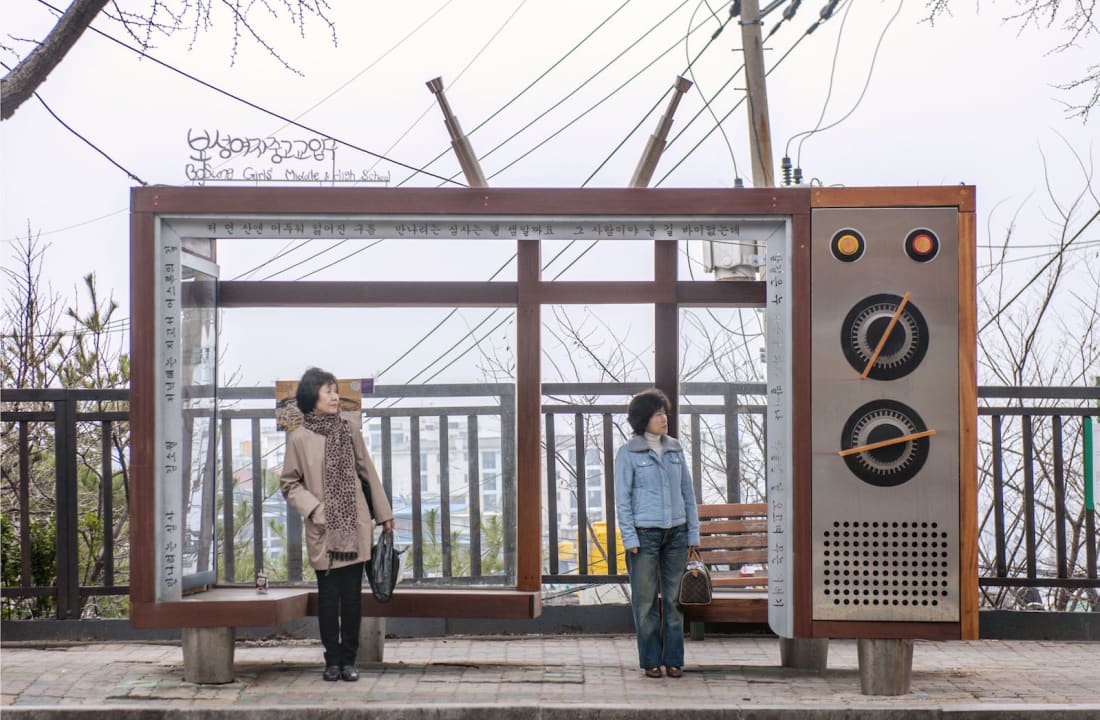
Hope you found something in this letter useful. Feel free to write back with any thoughts it has sparked about waiting, about time, or looking in general.
Yours in curiosity,
Menka
For more:
Just Looking Website
Just Looking Instagram
Noticing – Our Newsletter
Join our newsletter community for monthly inspiration to slow down and stay curious about everyday life and what matters most to you.


